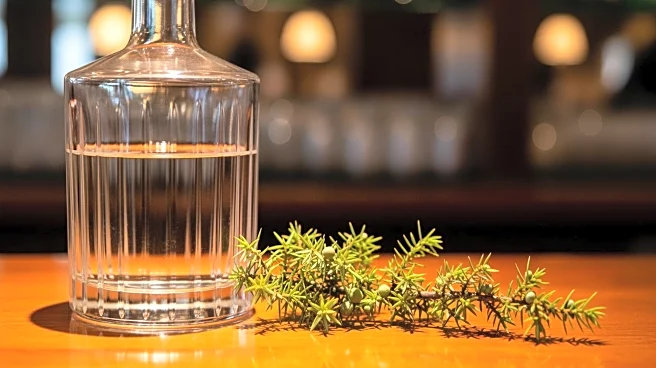What's Happening?
The European Union court has ruled that non-alcoholic beverages cannot use the term 'gin' in their labeling, even if they are flavored with juniper berries. This decision was prompted by a challenge from
the German association Verband Sozialer Wettbewer against PB Vi Goods, which marketed a product named 'Virgin Gin Alkoholfrei'. The court found that the use of 'gin' was misleading, despite the 'alcohol-free' descriptor. The ruling is supported by the Gin Guild, which argues that it protects the integrity of the gin category and ensures clarity for consumers. Major distilling companies like Bacardi and Diageo have welcomed the decision, emphasizing the importance of maintaining global standards for gin labeling.
Why It's Important?
This ruling is significant for the beverage industry as it reinforces the importance of accurate labeling and brand integrity. It prevents unfair competition from products that mimic traditional spirits without meeting the legal definitions. The decision supports distillers who invest in the craft of gin distillation and helps maintain consumer trust in the authenticity of gin products. It also sets a precedent for other non-alcoholic beverages seeking to use traditional spirit names, potentially influencing global labeling practices and protecting established brands from dilution.
What's Next?
Producers of non-alcoholic beverages will need to adjust their marketing strategies and product labeling to comply with the ruling. This may lead to increased innovation in branding and product differentiation within the non-alcoholic sector. The decision could also prompt further legal challenges and discussions around the labeling of other non-alcoholic spirits, as the industry continues to grow and evolve. Stakeholders in the beverage industry may seek to establish clearer guidelines and standards for non-alcoholic products to ensure compliance and consumer clarity.
Beyond the Headlines
The ruling highlights the ethical considerations in marketing and labeling within the beverage industry. It underscores the need for transparency and honesty in product descriptions, which can affect consumer perceptions and trust. The decision may also influence cultural attitudes towards non-alcoholic beverages, encouraging a shift towards more distinct and innovative product offerings that do not rely on traditional spirit names.









